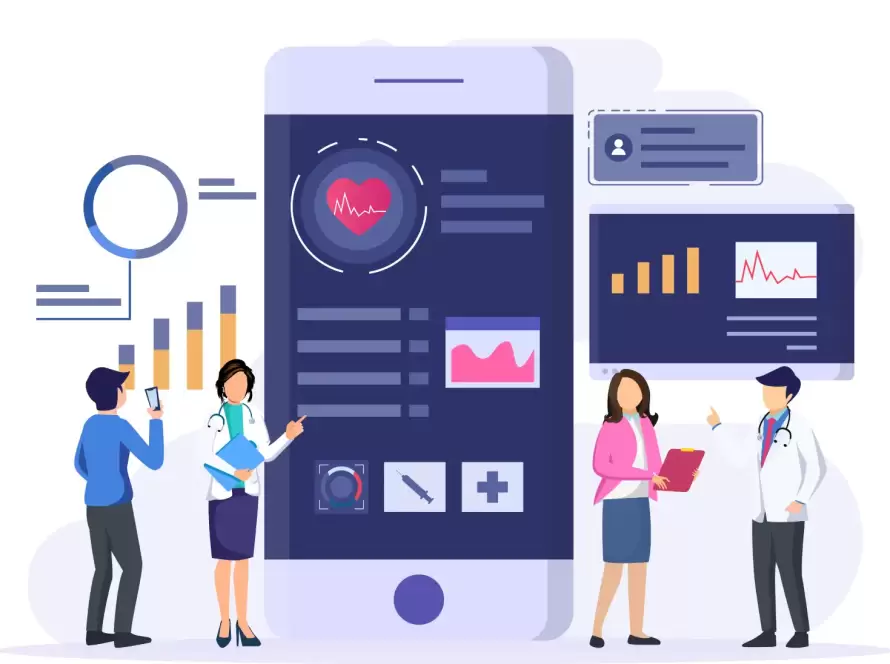Decentralized Clinical Trials (DCTs) represent a paradigm shift in the landscape of clinical research, offering a host of user-friendly features that enhance the overall experience for both researchers and participants. Embracing the power of technology, DCTs leverage remote capabilities, digital platforms, and innovative tools to make clinical trials more accessible and convenient. From the comfort of their homes, participants can engage in study activities, enroll seamlessly through online platforms, and contribute valuable health data through wearables and mobile technologies. The integration of decentralized data collection, Electronic Patient-Reported Outcomes (E-PRO), and virtual consultations not only streamlines the research process but also prioritizes participant-centric approaches. As the clinical research landscape evolves, these user-friendly features aim to improve participant engagement, data accuracy, and overall trial efficiency, fostering a more patient-friendly and accessible approach to advancing medical knowledge. Here are some key user-friendly features of decentralized clinical trials in details:
- Remote Participation:
- Home-Based Visits: Participants can complete study activities from the comfort of their homes, reducing the need for frequent visits to clinical sites.
- Virtual Consultations: Remote consultations with healthcare professionals and study coordinators allow participants to discuss their progress and address concerns without traveling.
- Digital Recruitment and Consent:
- Online Enrollment: Participants can easily enroll in studies through digital platforms, simplifying the recruitment process.
- Electronic Consent Forms: Participants can review and sign consent forms digitally, enhancing the efficiency of the onboarding process.
- Wearable and Mobile Technologies:
- Wearable Devices: Remote monitoring through wearables like activity trackers, adhesive patches, biosensors, blood pressure monitors, digital stethoscope, thermometers, smart watches, pulse oximeter, glucometer, electrocardiogram (ECG) monitor, scale allows continuous collection of health data, providing researchers with real-time insights into participants’ conditions.
- Mobile Apps: Participants can use mobile apps to report symptoms, medication adherence, and other relevant information, improving data accuracy and reducing the burden on participants.
- E-PRO (Electronic Patient-Reported Outcomes):
- Digital Surveys and Questionnaires: Participants can complete surveys and questionnaires online, eliminating the need for paper-based forms and allowing for easier data collection.
- Decentralized Data Collection:
- Decentralized Data Sources: Integration with Electronic Health Records (EHRs)and other digital health platforms facilitates the seamless collection of diverse data points without relying solely on site visits.
- Patient Engagement Tools:
- Educational Resources: Providing participants with easily accessible educational materials about their health condition, available treatment modalities and the information about benefits and associated risks being a study participant helps to enhance engagement and understanding.
- Reminders and Alerts: Automated reminders for study activities, medication adherence, and appointments help participants stay on track with the protocol.It improved treatment compliance as well as on time data is available for review for the investigator and the monitoring teams. Any course correction required is therefore available without any delays.
- Telemedicine and Telehealth:
- Virtual Study Visits: Utilizing telemedicine for virtual study visits allows participants to interact with healthcare professionals remotely, reducing the need for in-person visits.
- Remote Monitoring: Telehealth technologies enable continuous monitoring of participants’ health status and facilitate early detection of issues.
- Centralized Data Management:
- Cloud-Based Platforms: Centralized data storage and management on secure cloud platforms enable researchers to access and analyze data more efficiently.
- Participant Feedback and Support:
- Feedback Mechanisms: Providing channels for participants to provide feedback and report issues helps improve the overall experience and address concerns promptly.
- 24/7 Support: Offering support services around the clock ensures that participants can access assistance when needed.
In conclusion, decentralized clinical trials (DCTs) introduce a host of user-friendly features that prioritize convenience and accessibility for both researchers and participants. The shift toward remote participation, enabled by digital recruitment, electronic consent, and wearable technologies, has revolutionized the clinical trial landscape. Embracing decentralized data collection, telemedicine, and user-friendly interfaces not only streamlines study processes but also enhances participant engagement. With these advancements, DCTs not only bring research closer to the participants but also foster a more inclusive and patient-centric approach to clinical trials, marking a significant step forward in the evolution of modern healthcare research. This demands a strong digital platform and a user-friendly customized application that works on smartphones and encompasses various local languages for easy use by the study participant.


